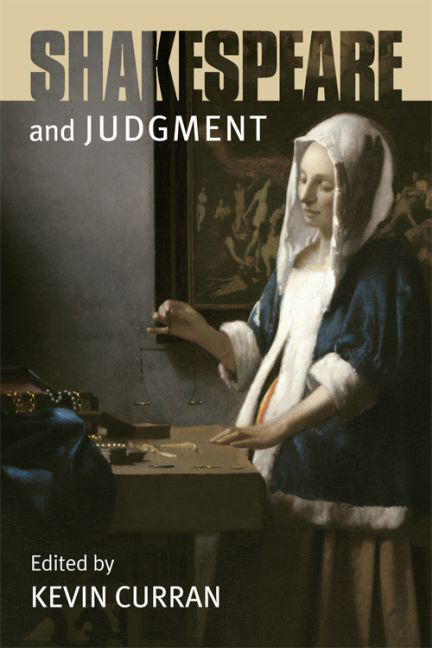27 results
Chapter 11 - The Four Cardinal Virtues
- from Part II - Shakespeare’s Virtues
-
-
- Book:
- Shakespeare and Virtue
- Published online:
- 19 January 2023
- Print publication:
- 26 January 2023, pp 113-124
-
- Chapter
- Export citation
Seed-shattering phenology at soybean harvest of economically important weeds in multiple regions of the United States. Part 3: Drivers of seed shatter
-
- Journal:
- Weed Science / Volume 70 / Issue 1 / January 2022
- Published online by Cambridge University Press:
- 15 November 2021, pp. 79-86
-
- Article
-
- You have access
- Open access
- HTML
- Export citation
Seed-shattering phenology at soybean harvest of economically important weeds in multiple regions of the United States. Part 1: Broadleaf species
-
- Journal:
- Weed Science / Volume 69 / Issue 1 / January 2021
- Published online by Cambridge University Press:
- 04 November 2020, pp. 95-103
-
- Article
-
- You have access
- Open access
- HTML
- Export citation
Seed-shattering phenology at soybean harvest of economically important weeds in multiple regions of the United States. Part 2: Grass species
-
- Journal:
- Weed Science / Volume 69 / Issue 1 / January 2021
- Published online by Cambridge University Press:
- 26 October 2020, pp. 104-110
-
- Article
-
- You have access
- Open access
- HTML
- Export citation
Series Editor’s Preface
-
-
- Book:
- Shakespeare and the Fall of the Roman Republic
- Published by:
- Edinburgh University Press
- Published online:
- 04 May 2021
- Print publication:
- 17 September 2018, pp xi-xii
-
- Chapter
- Export citation
Series Editor’s Preface
-
-
- Book:
- Shakespeare's History Plays
- Published by:
- Edinburgh University Press
- Print publication:
- 01 November 2017, pp vii-x
-
- Chapter
- Export citation
Series Editor's Preface
-
-
- Book:
- Shakespeare's Moral Compass
- Published by:
- Edinburgh University Press
- Published online:
- 14 September 2018
- Print publication:
- 07 July 2017, pp vii-x
-
- Chapter
- Export citation
Series Editor's Preface
-
-
- Book:
- Chaste Value
- Published by:
- Edinburgh University Press
- Published online:
- 22 December 2017
- Print publication:
- 09 June 2017, pp viii-x
-
- Chapter
- Export citation
Part II - Audience Judgment: Deliberation in the Theater
-
- Book:
- Shakespeare and Judgment
- Published by:
- Edinburgh University Press
- Published online:
- 10 May 2017
- Print publication:
- 10 May 2017, pp 91-92
-
- Chapter
- Export citation
Frontmatter
-
- Book:
- Shakespeare and Judgment
- Published by:
- Edinburgh University Press
- Published online:
- 10 May 2017
- Print publication:
- 10 May 2017, pp i-iv
-
- Chapter
- Export citation
Acknowledgments
-
- Book:
- Shakespeare and Judgment
- Published by:
- Edinburgh University Press
- Published online:
- 10 May 2017
- Print publication:
- 10 May 2017, pp vii-vii
-
- Chapter
- Export citation

Shakespeare and Judgment
-
- Published by:
- Edinburgh University Press
- Published online:
- 10 May 2017
- Print publication:
- 10 May 2017
7 - Prospero's Plea: Judgment, Invention, and Political Form in The Tempest
- from Part II - Audience Judgment: Deliberation in the Theater
-
-
- Book:
- Shakespeare and Judgment
- Published by:
- Edinburgh University Press
- Published online:
- 10 May 2017
- Print publication:
- 10 May 2017, pp 157-172
-
- Chapter
- Export citation
Contents
-
- Book:
- Shakespeare and Judgment
- Published by:
- Edinburgh University Press
- Published online:
- 10 May 2017
- Print publication:
- 10 May 2017, pp v-vi
-
- Chapter
- Export citation
Part III - The Ethics of Judgment
-
- Book:
- Shakespeare and Judgment
- Published by:
- Edinburgh University Press
- Published online:
- 10 May 2017
- Print publication:
- 10 May 2017, pp 173-174
-
- Chapter
- Export citation
Part I - Staging Judgment: Deliberation in the Plays
-
- Book:
- Shakespeare and Judgment
- Published by:
- Edinburgh University Press
- Published online:
- 10 May 2017
- Print publication:
- 10 May 2017, pp 19-20
-
- Chapter
- Export citation
Introduction
-
-
- Book:
- Shakespeare and Judgment
- Published by:
- Edinburgh University Press
- Published online:
- 10 May 2017
- Print publication:
- 10 May 2017, pp 1-18
-
- Chapter
- Export citation
Index
-
- Book:
- Shakespeare and Judgment
- Published by:
- Edinburgh University Press
- Published online:
- 10 May 2017
- Print publication:
- 10 May 2017, pp 235-238
-
- Chapter
- Export citation
List of Contributors
-
- Book:
- Shakespeare and Judgment
- Published by:
- Edinburgh University Press
- Published online:
- 10 May 2017
- Print publication:
- 10 May 2017, pp viii-x
-
- Chapter
- Export citation
Canada Task Force 2 Medical Team Deployment to the Fort McMurray Wildfire
-
- Journal:
- Prehospital and Disaster Medicine / Volume 32 / Issue S1 / April 2017
- Published online by Cambridge University Press:
- 20 April 2017, p. S112
- Print publication:
- April 2017
-
- Article
-
- You have access
- Export citation



